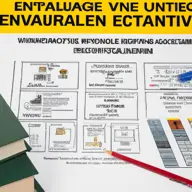Complete Course on Value Engineering, designed for Engineers and Professionals
1372 Views
3 Enrollments
Share
-
-
-
This course format is where trainer will explain you the subject via online live session. Date and time are not decided yet but it will be planned within next 2 weeks after you enroll & pay for this course. Get in touch with our team if any clarification is required.
₹ 10000
online

₹ 10000
Why do you enroll
Key topics covered
Course details
Course tags
Why do you enroll
After going through value engineering training courses participants will understand and learn about:
Understand the characteristics of Value Engineering along with related terminology: recognize the difference between the typical design process and the Value Engineering process.
Recognize how to consolidate Value Engineering proposals and value analysis concept.
Understand the techniques of value analysis and principles of Life Cycle Cost Analysis principles as applied to VE.
Understand FAST programming and selection of target areas of opportunity for creativity to improve project value.
Focus on function and thereby develop creative thinking towards project cost reduction.
Understand the difference between value analysis and value engineering.
Show more
Key topics covered
The value study is where the primary Value Methodology is applied. The effort is composed of 6 phases: Information, Function Analysis, Creativity, Evaluation, Development, and Presentation.
1. Information Phase
2. Function Analysis Phase
a. Identify Functions and define both work and sell functions of the product, project, or process under the value study using active verbs and measurable nouns. This is often referred to as "Random Function Definition "
b. Classify Functions as basic or secondary
c. Develop Function Models
d. Assign cost and/or other measurement criteria to functions.
e. Identify Function Worth by assigning the previously established user/customer attitudes to the functions.
f. Cost Functions. Compare cost to worth of functions to establish the best opportunities for improvement.
g. Establish Value Index. Assess functions for performance/schedule considerations.
h. Select functions for Value Study
i. Redefine study scope
1. Information Phase
2. Function Analysis Phase
a. Identify Functions and define both work and sell functions of the product, project, or process under the value study using active verbs and measurable nouns. This is often referred to as "Random Function Definition "
b. Classify Functions as basic or secondary
c. Develop Function Models
d. Assign cost and/or other measurement criteria to functions.
e. Identify Function Worth by assigning the previously established user/customer attitudes to the functions.
f. Cost Functions. Compare cost to worth of functions to establish the best opportunities for improvement.
g. Establish Value Index. Assess functions for performance/schedule considerations.
h. Select functions for Value Study
i. Redefine study scope
3. Creative Phase
4. Evaluation Phase
5. Development Phase
6. Presentation Phase
C. Post Study
Complete Changes, Implement Changes, Monitor Status
The Post-Study assures implementation of the approved value study change recommendations.
Show more
Course Details
Value engineering (VE) or value analysis (VA) is an important & powerful approach for improvement in the performance of the products, system or producers & reduction in costs without jeopardizing their function.
The basic objective of value engineering is to achieve equivalent or better performance at a lower cost while maintaining all functional 7 quality requirement. It does this largely by identifying & alimenting hidden, invisible & unnecessary costs. Value engineering helps in improving efficiency as well as effectiveness of products, system & procedures. The objectives of value engineering are as follows:
1) To enable people to pinpoint areas that needs attention & improvement.
2) To provide a methods of generating ideas & alternatives for possible solution to a problem.
3) To provide a means of devaluing alternatives including intangible factors.
4) To provide a vehicle for dialogue.
5) To document the rationale behind decisions.
6) To materially improves the value of goods & services.

Show more
FAQs on Complete Course on Value Engineering, designed for Engineers and Professionals
Having specific question ? Ask now
Certificate of Mastery

Receive well recognised certificate that you can showcase on
Featured courses
Hazard Identification and Risk Assessmen...

How to prevent corrosion in the oil and ...

Application and use of "Green Hydrogen"

Career in EPC projects for Freshers

Career in EPC Cost Estimation

Learn MATLAB Programming

More Technical Courses From Sarjerao Pingale
Should Costing - Why and How to Perform
Complete Course on Value Engineering, de...
Product Tear Down & Benchmarking
Should Costing
More Articles From Sarjerao Pingale
Work From Home- New Normal
Product Cost Engineering
Similar Profile:

Debojyoti sen
MD & CEO, SAURYAJYOTI REN...

Sabari Kuppuraj
Engineer

Dr Bhawani Singh Rathore
Renewable Energy Coach an...

BGS Group
The organiser of closed-d...

Mir Abbas
Senior Engineer

THE EXPERTS MEP SOLUTIONS
THE EXPERTS MEP SOLUTIONS

HEXSPUR FOUNDATION
Mechanical Design Enginee...

Nagarajan Thanumoorthy
Senior Mechanical Enginee...











